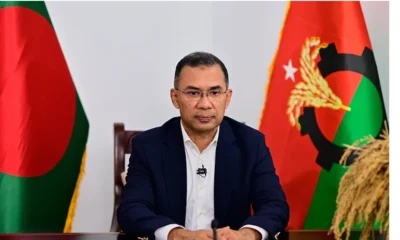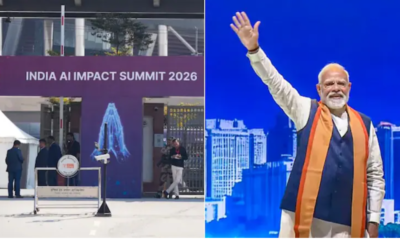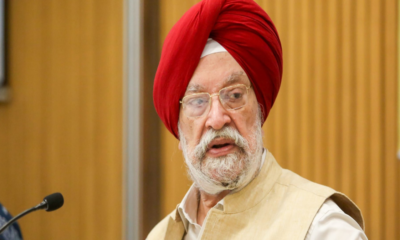[vc_row][vc_column][vc_column_text]A new study by none less than India’s former Chief Economic Advisor Arvind Subramanian may have punctured India’s much vaunted status as world’s fastest growing economy.
Titled India’s GDP Mis-estimation: Likelihood, Magnitudes, Mechanisms, and Implications, Subramanian’s working paper for the Center for International Development at Harvard University, US, is critical of Indian statisticians and the way India’s GDP growth has been estimated after 2011-12.
It says the expansion was overestimated by as much as 2.5 per cent between 2011 and 2017, that is, during UPA-2 and Prime Minister Narendra Modi’s first term. Rather than growing at about 7% a year in that period, growth was about 4.5%.However, it doesn’t break this down by year.
But this means India’s claim of being the world’s fastest-growing major economy may not have been true.
“The Indian policy automobile has been navigated with a faulty, possibly broken, speedometer,” says Arvind Subramanian, who was Chief Economic Adviser for Prime Minister Narendra Modi’s government between 2014 and 2018. He asserts that the overestimation is not political.
“My new research suggests that post-global financial crisis, the heady narrative of a guns-blazing India – that statisticians led us to believe – may have to cede to a more realistic one of an economy growing solidly but not spectacularly,” Subramanian wrote in The Indian Express, attributing the overestimation to “methodological changes”.
The previous Congress-led government changed the methodology in calculating gross domestic product in 2012. One of the key adjustments was a shift to financial accounts-based data compiled by the Ministry of Corporate Affairs, from volume-based data previously. This made GDP estimates more sensitive to price changes, in a period of lower oil prices, according to the research paper. Rather than deflate input values by input prices, the new methodology deflated these values by output prices, which could have overstated manufacturing growth.
Also Read: Cyclone Vayu to hit Gujarat on June 13 morning, delay northward progress of monsoon
Subramanian carried out an experiment, one that many other economists have also been doing for India: he made an index of other data sources that could reflect what is happening in the actual economy, such as electricity consumption, two-wheeler sales, index of industrial production and so on. None of these were figures that came from the Central Statistical Office, which compiles the GDP statistics.
Subramanian’s index found that these indicators tend to move closely in step with the GDP number between 2001-’02 and 2011-’12. But from 2011-’12 to 2016-’17, there are huge gaps between them. The paper uses various methods, including indicators from India and other countries, to test mis-estimation in growth, all of which confirm the belief that GDP growth was over-estimated.
Subramanian insists that the paper is only the start, and much more research needs to be done. But, in looking at the data, he does offer one explanation for why the new methodology of calculating GDP might have thrown out bad data.
Based on the experiment, Subramanian finds that before 2011, the official estimates of manufacturing move along with other indicators, like the index of industrial production. But under the new methodology, this connection is completely broken.
The reasons for this are more complicated but, to put it simply, the paper suggests that the new GDP methodology does not properly take into account how changes in global oil prices (and possibly other “input” commodities) might affect actual figures. Ultimately, this means that the new GDP methodology has a completely flawed understanding of manufacturing numbers.
But this only explains about a 1 percentage point of the overall 2.5 percentage point over-estimation. More research is needed to understand what else is going wrong.
Subramanian points out that this isn’t just a matter of denting India’s reputation. Bad data would also affect policymaking For example, the Reserve Bank of India might have cut interest rates much earlier if it was known that GDP growth was that much lower, and the government might have moved much quicker to resolve the banking crisis or agricultural concerns.
According to the former top economic adviser, the popular narrative has been one of “jobless growth”, hinting at a disconnect between fundamental dynamism and key outcomes. “In reality,weak job growth and acute financial sector stress may have simply stemmed from modest GDP growth. Going forward, there must be reform urgency stemming from the new knowledge that growth has been tepid, not torrid; And from recognising that growth of 4.5 per cent will make the government’s laudable inclusion agenda difficult to sustain fiscally.”
Also Read: AN-32’s wreckage found in Arunachal Pradesh eight days after it went missing
Dr Subramanian explains that when he was working with the government, he had grappled with conflicting data and “raised doubts frequently” with the government. “But the time and space afforded by being outside government were necessary to undertake months of very detailed research, including subjecting it to careful scrutiny and cross-checking by numerous colleagues, to generate robust evidence,” he says.
The paper has three recommendations for what India needs to do:
India must “restore growth as a key policy objective”.
India must “restore the reputational damage suffered to data generation,” not only by giving statutory independence to the National Statistical Commission (which currently has no independent members) but also by hiring people with “stellar technical and personal reputations”.
The entire methodology and implementation for GDP estimation must be revisited by an independent task force, comprising both national and international experts, with impeccable technical credentials and demonstrable stature.
On the other hand, the politically appointed NITI Aayog was seen as interfering with India’s statistical operations. Recently, word has emerged that the BJP is thinking about a new law to merge the main bodies that work on statistics, potentially undermining their independence.
[/vc_column_text][/vc_column][/vc_row]


 India News23 hours ago
India News23 hours ago
 India News23 hours ago
India News23 hours ago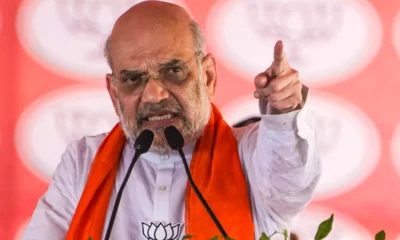
 India News22 hours ago
India News22 hours ago
 India News22 hours ago
India News22 hours ago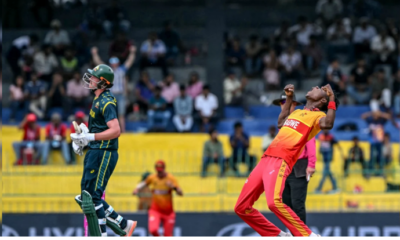
 Cricket news22 hours ago
Cricket news22 hours ago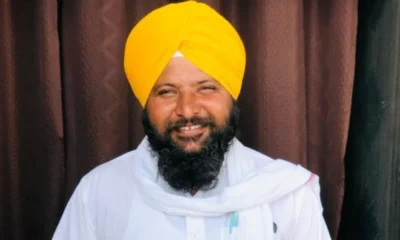
 India News13 hours ago
India News13 hours ago
 India News12 hours ago
India News12 hours ago
